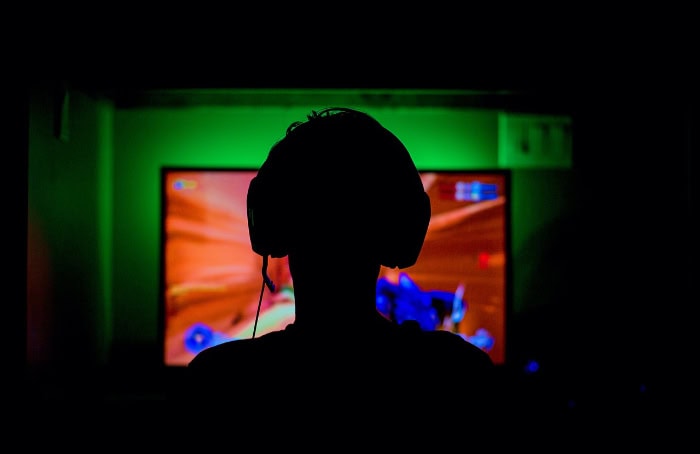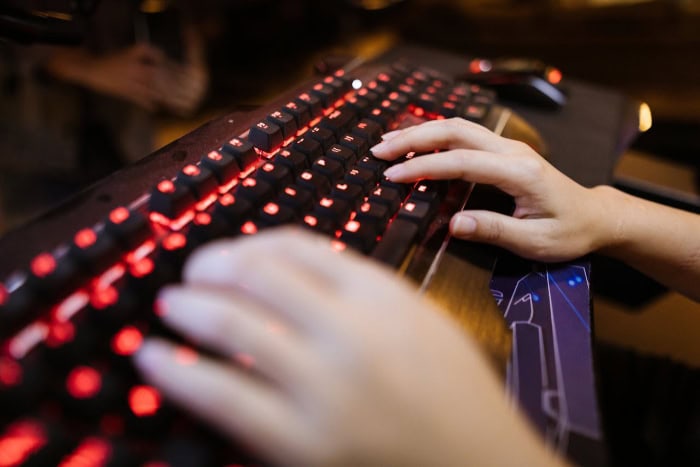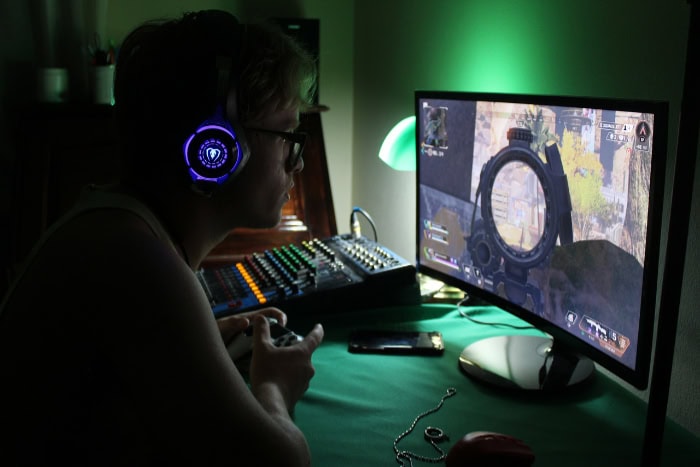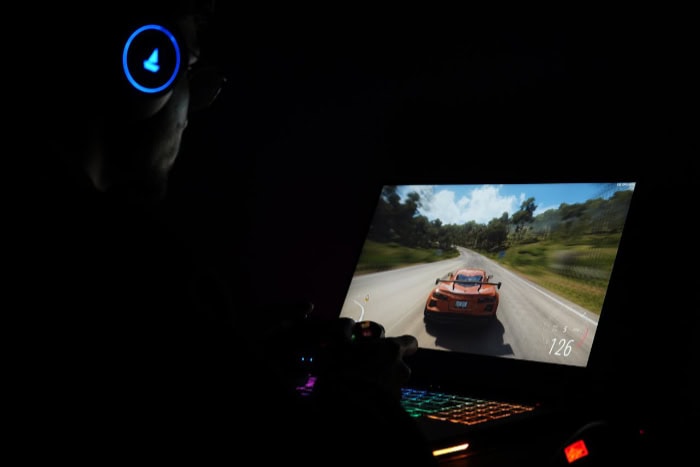How to Fix Games That Keep Crashing on PC

Gaming can be one of life's most exhilarating experiences, offering immersive worlds where players can lose themselves for hours. However, the frustration of game crashes can quickly turn that excitement into disappointment.
Whether during an intense boss fight or a leisurely exploration of an open world, unexpected crashes disrupt gameplay and can hinder overall enjoyment.
Addressing these issues is crucial for maintaining an optimal gaming experience. This article will explore the common causes of game crashes on PC, provide effective troubleshooting steps, suggest performance optimization strategies, and highlight advanced solutions for persistent problems.
The Causes of Game Crashes
Game crashes can stem from a variety of sources, both hardware and software-related. Identifying the root cause of these interruptions is essential for gamers looking to enhance their gaming experience.
Hardware Limitations
One of the primary reasons games crash is hardware that cannot support the demands of modern gaming. Every game comes with minimum and recommended system requirements, which define the necessary processing power, memory, and graphical capabilities needed for smooth operation.
When a PC only meets the minimum requirements, gamers may experience reduced performance, long load times, and instability. Insufficient RAM, an outdated graphics card, or an underpowered CPU can lead to crashes, especially in graphics-intensive titles that push hardware to the limit.
It’s also important to consider the impact of older components. As technology advances, newer games are designed with the latest hardware in mind, often leaving older systems struggling to keep up.
Upgrading key components can significantly improve game stability and overall performance.
Overclocking and Thermal Issues
Many gamers push their machines to the limit by overclocking, a practice that increases the clock speed of hardware components to enhance performance. While this can yield improved frame rates, it can also compromise system stability.
Overclocked components can produce more heat, which affects the overall performance and longevity of the hardware.
Thermal issues are a common cause of crashes when the cooling systems cannot handle the increased heat output from overclocked components. Overheating causes CPUs and GPUs to throttle down their performance or, in severe cases, shut down completely to prevent damage.
Regular maintenance, such as cleaning dust from cooling fans and ensuring good airflow within the case, can help mitigate overheating issues. Monitoring temperatures while gaming is also advisable to ensure components remain within safe operating limits.
Software Conflicts and Updates

Maintaining software compatibility is essential for a stable gaming environment. Ensuring that the operating system is current and compatible with installed games helps prevent crashes during launch or gameplay.
An outdated operating system can lead to various conflicts, which contribute to instability.
Updating software and drivers regularly is vital for optimal performance. Outdated drivers, especially for graphics cards, can introduce compatibility issues that may result in crashes.
Manufacturers frequently release driver updates that address bugs and enhance performance. Therefore, checking for these updates regularly is recommended.
In addition to system updates, game developers often release patches to fix known issues, improve performance, and introduce new features. Neglecting these updates can leave a game vulnerable to instability.
Conflicts between different software applications, such as antivirus programs or background services, can also disrupt gameplay. Closing unnecessary applications while gaming reduces the likelihood of resource competition and software conflicts.
Troubleshooting Steps to Fix Crashes
When faced with game crashes, it can be frustrating to pinpoint the exact cause and find a solution. Implementing a systematic approach to troubleshooting can help identify problems and restore stable gameplay.
Basic Troubleshooting Techniques
Starting with the basics can often resolve simple issues that lead to game crashes. Restarting both the game and the PC can refresh system resources and clear temporary files, which may have become corrupted.
This quick fix can sometimes be all that is needed to restore functionality.
Another crucial step is to check for error messages or logs generated when a crash occurs. Many games have built-in logging features or error reports that can provide insight into the issue.
Noticing patterns, such as specific error codes, can guide players toward targeted solutions. This initial assessment can reveal whether the problem lies within the game itself or is influenced by external factors, such as hardware failure or software conflicts.
Verifying Game Files
In many cases, game files can become corrupted or incomplete, leading to instability and crashes. Most gaming platforms, like Steam and the Epic Games Store, provide tools to verify the integrity of game files.
This process checks installed files against the original version and replaces any damaged or missing files automatically.
If verification does not resolve the issue, reinstalling the game may be necessary. This step should be considered a last resort, as it involves redownloading the entire game and can be time-consuming.
Before proceeding with a reinstallation, verifying game files often provides a quicker and more efficient solution.
Performance Optimization Strategies

Achieving smooth and enjoyable gameplay requires not only a capable gaming setup but also an optimized configuration. By adjusting in-game settings, managing background applications, and maintaining system health, players can enhance performance and reduce the likelihood of crashes or lag.
Adjusting In-Game Settings
In-game settings play a crucial role in balancing visual fidelity and performance. Each game typically provides options that can be tailored to the player's hardware capabilities.
For gamers with powerful systems, higher graphics settings can enhance visual quality significantly, improving immersion. However, those using older or less capable hardware may experience frame drops and instability with high settings.
Reducing graphics quality, adjusting resolutions, and disabling demanding features such as anti-aliasing or real-time shadows can help maintain a steady frame rate.
Many games also offer preset graphics profiles—low, medium, high, and ultra—which can serve as a good starting point. The objective is to find a balance that delivers an enjoyable experience without overwhelming the hardware.
Managing Background Applications
Background applications can consume system resources, detracting from gaming performance. Identifying and closing resource-heavy applications can free up vital CPU, RAM, and GPU power, allowing the game to run more smoothly.
Common culprits include web browsers with multiple open tabs, streaming software, and even system updates running in the background.
Monitoring system performance during gameplay can provide insight into how various applications affect performance. Tools such as Task Manager on Windows can help track CPU and memory usage.
System Maintenance Practices
Maintaining a clean and well-functioning computer is essential for optimal gaming. Regular disk cleanup can remove unnecessary files that accumulate over time, freeing up space and possibly improving performance.
Disk defragmentation is particularly useful for traditional hard drives, as it organizes data more efficiently, leading to faster access times. However, it's worth noting that solid-state drives (SSDs) do not require defragmentation in the same way, as they access data differently.
Additionally, utilizing tools like System File Checker (SFC) can help identify and repair corrupted system files that may impact performance or stability. Running SFC scans periodically ensures that the operating system is in good shape, reducing the likelihood of crashes and other issues during gameplay.
Keeping a consistent maintenance routine can significantly enhance the gaming experience, allowing players to focus more on the game and less on technical interruptions.
Advanced Solutions for Persistent Issues

When crashes persist despite basic troubleshooting and performance optimization, it may be time to consider more advanced solutions. This includes evaluating hardware capabilities, making system configuration adjustments, and utilizing diagnostic tools to identify and resolve underlying problems.
Hardware Upgrades
Upgrading hardware components can significantly improve gaming performance, especially if crashes are frequent due to insufficient resources. Identifying which components may need enhancement is the first step.
The most common culprits include RAM and the graphics processing unit (GPU).
Increasing RAM can alleviate issues related to multitasking and improve performance in memory-intensive games. If the system struggles with load times or stutters during gameplay, it may indicate that more memory is needed.
Upgrading the GPU is often the most impactful change for gamers seeking better graphics and frame rates. A more powerful graphics card allows for higher settings and resolutions without sacrificing stability.
Additionally, investing in better cooling solutions is highly beneficial, especially for overclocked systems or older builds. Improved airflow and cooling can prevent overheating, ensuring components operate at optimal temperatures.
This not only prolongs the life of hardware but also helps maintain consistent performance during demanding gaming sessions.
System Configuration Adjustments
Fine-tuning system settings can also contribute to enhanced performance and stability. For laptops, modifying power settings is an effective adjustment.
Setting the power plan to ‘High Performance’ can prevent the system from throttling back CPU speeds during gameplay, allowing for maximum performance when needed.
Disabling unnecessary startup programs can free up system resources right from the beginning. Many applications automatically run at startup, consuming memory and processing power even when not in use.
Disabling these programs reduces the load on the system during boot-up and ensures that more resources are available for gaming.
Using Diagnostic Tools
Diagnostic tools can provide valuable insights into hardware health and performance. Tools such as MemTest86 can test the integrity of RAM, identifying errors that could cause crashes.
Running such diagnostics ensures that memory components function properly, which is critical for maintaining system stability.
HWMonitor is another useful tool for tracking temperatures, voltages, and fan speeds within the system. Monitoring these parameters helps to identify overheating issues or power inconsistencies that might contribute to crashes.
Stress testing components is also crucial to thoroughly evaluate their stability under load. Software like Prime95 for CPUs and FurMark for GPUs can simulate intense gaming conditions, helping to reveal weaknesses in the hardware.
Failing during stress tests may indicate the need for a replacement or an upgrade, guiding users toward a more reliable gaming setup.
Community Resources and Support

When technical issues arise during gaming, finding the right support can make a significant difference in resolving problems. Community resources and official support channels provide valuable avenues for gamers seeking assistance.
Engaging with fellow gamers and utilizing developer support can enhance the gaming experience and ensure that issues are addressed effectively.
Utilizing Online Forums and Communities
Online forums and gaming communities serve as excellent resources for gamers who encounter technical problems. Engaging with fellow gamers allows individuals to share experiences, solutions, and tips related to specific games or hardware.
These interactions create a sense of camaraderie and can lead to faster resolutions compared to troubleshooting in isolation.
Popular platforms for gaming discussions include Reddit, Discord servers, and dedicated gaming forums like NeoGAF and GameFAQs. These platforms often have sections specifically for troubleshooting where users can post their issues and receive feedback from others who may have faced similar challenges.
Searching through existing threads can also provide insights into common problems and their solutions, saving time and effort.
Official Support Channels
In addition to community resources, contacting official support channels can be vital for addressing persistent issues. Game developers and publishers typically offer customer support through dedicated websites, where players can find FAQs, troubleshooting guides, and contact options for direct assistance.
When reaching out for support, it is essential to provide detailed information about the issue, including error messages, system specifications, and steps already taken to resolve the problem. This information helps support staff diagnose the issue more efficiently.
Reporting bugs effectively is another important aspect of engaging with official support. Many game developers encourage players to report bugs and glitches as part of their commitment to improving game quality.
When submitting bug reports, players should describe the issue clearly, including when it occurs and any specific conditions that lead to the problem. This feedback can contribute to future patches and updates, enhancing the overall gaming experience for everyone.
Conclusion
Addressing game crashes on PC is essential for ensuring an enjoyable and seamless gaming experience. Identifying the causes, from hardware limitations to software conflicts, lays the groundwork for effective troubleshooting.
Implementing basic and advanced solutions, including performance optimizations and hardware upgrades, can significantly enhance gameplay stability.
Engaging with online communities and utilizing official support channels further empowers gamers to solve persistent issues while fostering a sense of camaraderie. By taking proactive steps and leveraging available resources, players can minimize disruptions and immerse themselves fully in their gaming adventures.
With the right strategies in place, the gaming experience can transform from frustrating to fulfilling.


